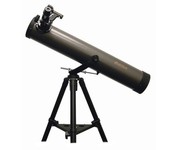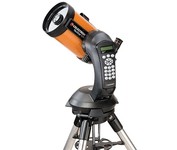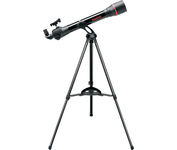Products reviews
Galileo FS-80 Telescope$65.00 to $80.00
Tags:galileo, fs-80, telescope, | Celestron NexStar 5 SE (300 x 44.45mm) Telescope$699.00 to $820.00
Tags:celestron, nexstar, 5, se, 300, x, 44.45mm, telescope, | Tasco 49070800 Spacestation(r) 70az Refractor Telescope (600 x 70mm)$74.00 to $128.00
Tags:tasco, 49070800, spacestationr, 70az, refractor, telescope, 600, x, 70mm, |
Celestron NexStar 130SLT (31145) (306 x 130mm) Telescope
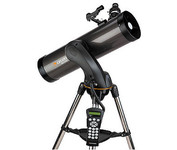
Computerized hand control with 4,000-object database SkyAlign allows you to align on any 3 bright celestial objects Motorized Altazimuth mount Focal ratio: f5 Focal length: 650mm
Bushnell NorthStar 78-8846 (675 x 114mm) Telescope
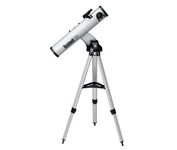
Real Voice Output version of premier Northstar 675x4.5". With the tough of a button this talking telescope describes the wonders of the night sky in a real human voice - an interactive and educational way to explore the universe. "Goto" Computerized tracking technology. Red Dot LED finderscope. Remote hand-held control module. Camera adaptable. Quick release tripod. Kinematic mount. Accessory tray. 20,000 Object Onboard Starfinding Computer. 1.25" Format Eyepieces. Barlow Lens. A great starting telescope!Minimize
Celestron PowerSeeker 127 EQ 21049 (750 x 127mm) Telescope
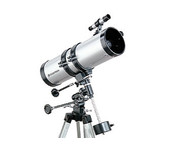
The PowerSeekers come in a choice of refractor or reflector, equatorial or altazimuth mount design. The PowerSeekers come with all coated glass optical components with for enhanced image brightness and clarity. The Newtonian reflectors offer larger aperture and greater light gathering power needed to resolve the faint detail of hundreds of deep-sky and other celestial objects.Minimize
Celestron NexStar 6 SE (354 x 55.88mm) Telescope
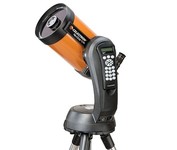
Whether you are a seasoned astronomer looking for a portable scope with advanced features, or just starting your astronomy adventure and looking for an easy way to enjoy the night sky, a NexStar SE will help you take a closer look.
